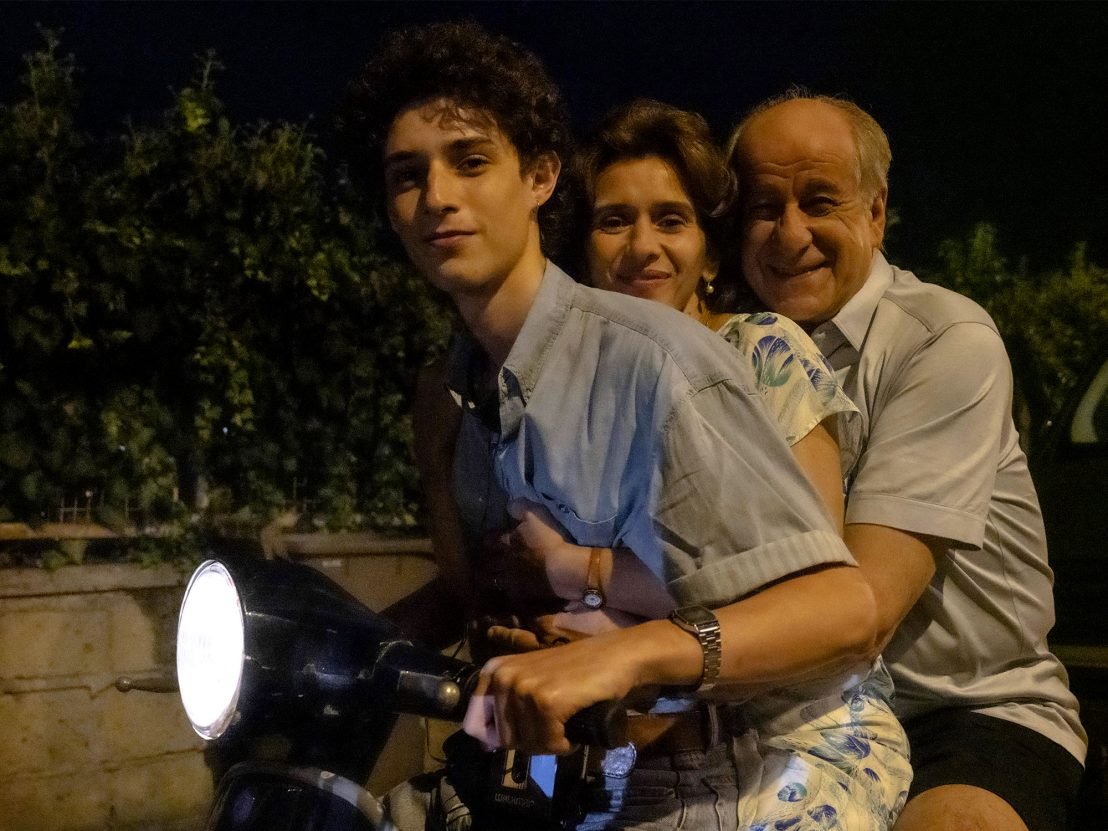Review: 'The Hand of God' is Paolo Sorrentino's sensuously gorgeous love letter to his boisterous Naples family.
In his latest movie, and arguably most personal one, “The Hand of God,” Italian director Paolo Sorrentino introduces audiences to his sprawling, boisterous family — and puts a teen version of himself at the center, trying to figure out what to make of it all.
The opening scenes, which show the many uncles and aunts who gather for weekend meals at the Schisa family’s home in Naples, may make a viewer feel like they’re visiting your significant other’s family for the first time. There are so many faces to encounter, names to remember, and quirks to associate with those faces and names, that you may feel overwhelmed. And by bombarding us with so many relatives, Sorrentino is perfectly capturing what being part of a family is all about.
After a bit, things settle down, and Sorrentino imparts a fair amount of information. The main character is a teen, Fabietto (played by Filippo Scotti — which, I think, is how you say “Timothee Chalamet” in Italian), who’s fairly quiet, at least in comparison to his loud family. His dad, Saverio (Toni Servillo, the star of Sorrentino’s “The Great Beauty”), is kind and laughs easily, mostly at the pranks that Fabietto’s mother, Maria (Teresa Saponangelo), likes to pull on neighbors and relatives. Together, his parents are still deliriously in love, whistling a tune to each other that’s their coded love language.
There are many others, though the one who sticks out in Fabietto’s recollections is his buxom aunt, Patrizia (Luisa Ranieri) — if only because of one time, when his parents were breaking up a domestic disturbance between Patrizia and her jealous husband, Franco (Massimiliano Gallo), that Fabietto saw his first naked breast since he was weaned.
The era is important: It’s the mid-1980s, a time notable in Sorrentino’s memory because his local soccer team, Napoli, signed a player who some consider the greatest who ever lived: Diego Maradona. (The title refers to Maradona’s infamous goal for Argentina, aided by an uncalled handball foul, in the 1986 World Cup quarter-final against England.)
The first hour of the film is a delight, a slightly manic run of boisterous family gatherings, where Fabietto mostly observes the gentle insults and sharp banter among his relatives. At the midway point, though, there’s a family tragedy, and Fabietto’s world is plunged into despair. “Reality is lousy,” Fabietto declares, as he decides he wants to become a filmmaker so he can create a reality more to his liking.
The reality Sorrentino creates here is sumptuous and sensuous, whether the cool bay where the family goes swimming or the decaying Neapolitan buildings where you might find a fully lit chandelier sitting askew on the floor. It’s also a reality brimming with fascinating characters, most notably the upstairs neighbor, The Baroness (Betty Pedrazzi), who teaches Fabietto about the mechanics of sex, and the cantankerous director (Ciro Capano), who hates fans and shouts at Fabietto to find his inspiration.
“The Hand of God” becomes, in Sorrentino’s loving hands, the Italian vacation you’ve always wanted to take, with the most interesting people you could find for company.
——
‘The Hand of God’
★★★1/2
Opens Friday, December 10, at the Broadway Centre Cinemas (Salt Lake City), available for streaming starting December 15 on Netflix. Rated R for sexual content, language, some graphic nudity and brief drug use. Running time: 131 minutes; in Italian with subtitles (or dubbed on Netflix).
